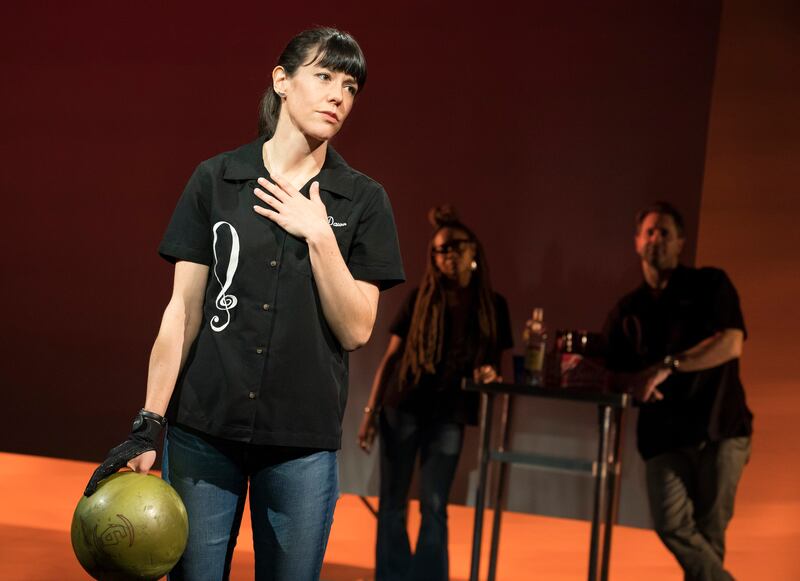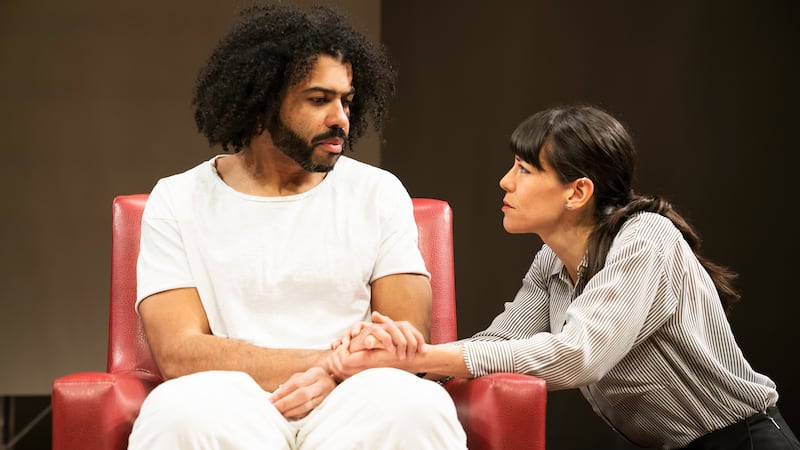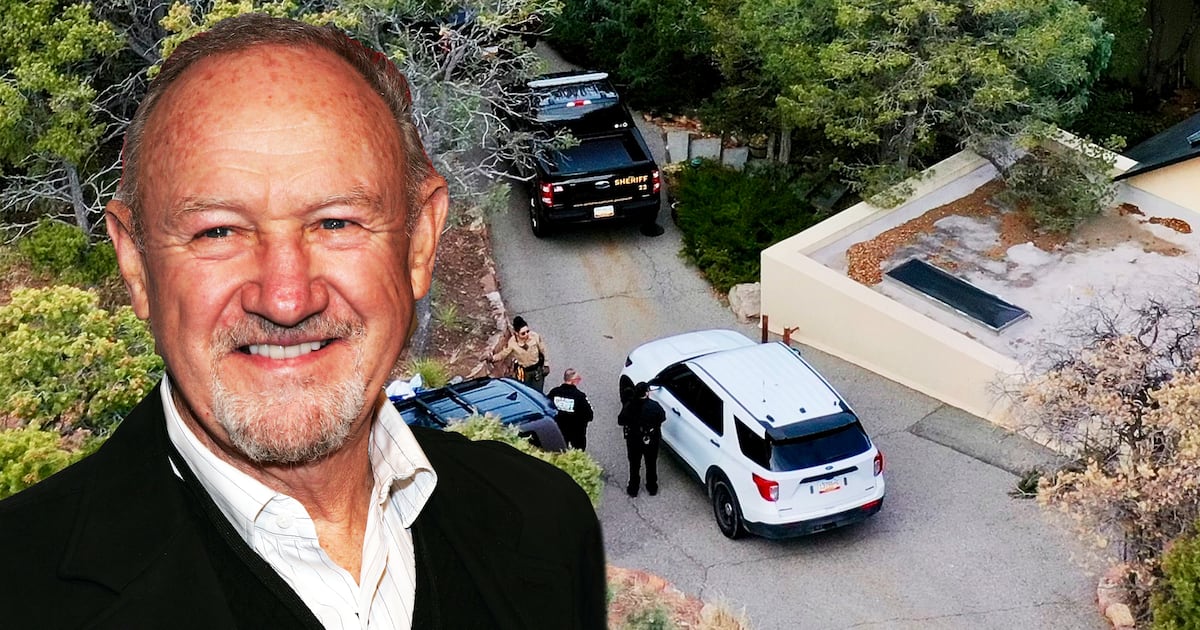As a phrase, White Noise has many meanings in Suzan-Lori Parks’ excellent play of the same name which opens tonight at New York City’s Public Theater (to May 5).
For one, it is the only sound that helps insomniac Leo (Tony-winning Hamilton star Daveed Diggs) to sleep. For another it is the noise (audible and not) produced by a racist society, both in the past and present, that makes for a paralyzing blur of confusion, pain, discrimination, and injustice.
At the beginning of the play, directed by the Public’s artistic director Oskar Eustis, we meet two interracial couples. Leo, a writer, is with Dawn (Zoë Winters), a lawyer with a staccato voice and manner. When Leo is pushed to the ground in an encounter with police, the shock makes him want to hide away, while Dawn is filled with outrage for him. Leo wants to sleep at night; and he also wants to inoculate his mind against a steady accumulation of pain and injustice.
In this play, Parks—the first African-American woman to win the Pulitzer Prize in Drama in 2002 for Topdog/Underdog—is asking, just how does a black person stay sane and healthy, prosperous and independent, in a racist society? Being awake, and what that means, is more significant in White Noise than being “woke.”
“In this play, the white guy isn’t the bad guy and the black guy the good guy—that’s so f*cking boring,” Parks told Playbill recently. “Everybody’s culpable. Everybody’s complicit.”
Leo’s friend Ralph, a lecturer, has found out he has missed out on a promotion. An Indian colleague has been promoted instead, leading to a whining meltdown by Ralph about being a victim of positive discrimination. If you ever wondered about the constituent parts of white privilege, Ralph is a walking, talking emblem.
His partner Misha (Sheria Irving) fronts a web series, “Ask A Black,” which does what that title says: you call her for her lived expertise on matters such as can black hair be touched. She responds in a sing-songy voice. Other calls Misha receives are threatening, menacing. The writing for all the characters is generous and burrowing. “I am the white woman character, black woman character. I am the black man character, the white man character,” Parks told Playbill.
The four friends have known each other for years; they meet to go bowling in an empty alley after hours—one of the many owned by Ralph. One of the best elements of Clint Ramos’ brilliant stage design are two little dug-out channels that deliver the bowling balls back to the four friends, alongside Xavier Pierce’s flashing, primary colored lighting. Screens dotted around the stage are used to deliver their scores, as well as Misha’s web-show in close-up.
Leo’s exhaustion with racism leads him to propose something radical to Ralph: that he will be his slave for 40 days as an act of protection for himself.
This is what you have to accept as a plot point, and among a group of liberal-seeming friends—who even having their liberalism tested would surely not countenance it. It was certainly met with more than a few gasps of incredulity in the audience I sat within. His safety and well-being, Leo feels, is so compromised that the protection afforded by Ralph’s wealth and skin color is the only thing that can make him truly safe.

Little does Leo know, Ralph isn't exactly mentally stable or free of racist grievance. This is a very bad, disaster-inviting idea.
The mechanics of this slavery produced gasps in our audience. Inevitably, the friendship between the two men is supplanted by the ugly dynamics of master and slave. What seemed like a jape, and one which immediately made Leo, Ralph, Dawn, and Misha recoil, quickly becomes a series of uncomfortable tableaux, most extremely when Ralph makes Leo make an antic, horrific-looking bodily-imprisoning device. Ralph also finds an upper-class white supremacist group, who are very tickled by the men’s social experiment.
Meanwhile, the play also investigates Misha and her web series. Misha knows this a self-conscious, exaggerated performance of blackness, but one that she owns and controls. Dawn’s storyline centers around do-good social justice, and how she has compromised herself while fighting the good fights.

The play is studded with well-made arguments and excellent performances from all four actors (including Ralph talking about the pain behind his own privilege, and Misha acknowledging the privilege of being with a white partner). The structural problem of the play is that energizing, necessary, brilliantly written arguments are made while in a framework of an absurd-seeming situation.
Not only don’t you believe the two men would set up the master-slave relationship in the first place, you also don’t believe their two politically-attuned partners would simply disappear and accept the arrangement once it has been made. The play advances a reason why the women might excuse themselves for a long period of time, but this other relationship—exploding into life, and then suddenly not—feels a little too dramatically convenient and empty. It's forgotten as soon as its employment as a device is done.

However, Parks' ideas and arguments are so alive one can look past the play's plausibility-stretching plot points; indeed, the slavery dynamic is so convincingly acted, frighteningly so, that its plausibility becomes sharpened. White Noise is both a thought-provoking and thoughtful examination of racism, and the vexed politics of race and identity that have tested interracial relations personally and politically to so many breaking points.
White Noise doesn’t offer easy answers, or uncompromising polarities. As Misha notes as the quartet surveys the wreckage of their friendship, they have gotten real.
There in the electrifying final scene of the play, between master and slave, the real meaning of “white noise” at its most insidious and chillingly recognizable is revealed; and along with it what being “woke” should really mean—far beyond the semantic comfort blanket it currently offers.







